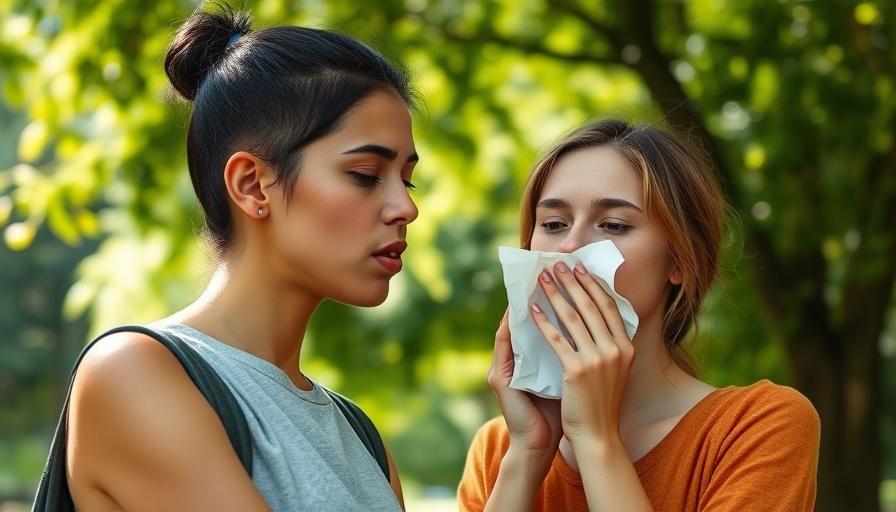
Understanding Fall Allergies: The Hidden Threat
As Charlotteans gear up for autumn, the excitement of cooler temperatures and vibrant leaves often comes with an unwanted guest: allergies. For many, the fall season introduces an influx of allergens such as ragweed pollen, which can trigger sneezing, coughing, and a host of other uncomfortable symptoms. Understanding the composition of these allergens can empower individuals to take proactive measures against them.
Why Fall Allergies Hit Hard
The primary culprit during the fall is ragweed. This plant releases pollen that can travel hundreds of miles, making it challenging for sensitive individuals to avoid exposure. According to health experts, ragweed pollen can linger in the air until the first frost, increasing the chances of allergic reactions. Furthermore, mold spores from fallen leaves can complicate matters, particularly for those with asthma or chronic respiratory issues.
Proven Strategies to Alleviate Symptoms
Fortunately, various effective strategies can help individuals manage their fall allergies. Experts recommend checking pollen counts daily and planning outdoor activities when counts are lower. Keeping windows closed, using air conditioning, and using high-efficiency particulate air (HEPA) filters can greatly reduce indoor pollen exposure. Additionally, practicing good hygiene, like showering after being outdoors, can remove allergens from skin and hair.
Nutrition's Role in Allergy Management
Adopting a nutrition-conscious approach also plays a crucial role in managing allergy symptoms. Foods rich in omega-3 fatty acids, such as salmon and walnuts, can reduce inflammation, while antioxidant-rich fruits like berries may help boost the immune system. Charlotte residents should consider integrating these into their diets to bolster their bodies against seasonal allergies.
Discover Local Resources and Support
For those seeking additional help, Charlotte healthcare professionals are particularly attentive to fall allergy issues. Clinics across the city offer screenings for allergies and can provide tailored advice for managing symptoms. Engaging with local wellness advocacy groups can also provide valuable community support, especially for those with chronic conditions.
Take Action for Your Health
If you find yourself prone to fall allergies, don’t wait until symptoms strike—start implementing these strategies today. Knowledge and preparation can make a world of difference in your comfort and well-being this season.
If you enjoyed this story, why not stay connected? Join Charlotte Local Unplugged on Facebook and YouTube for exclusive local information.
 Add Row
Add Row  Add
Add 




Write A Comment